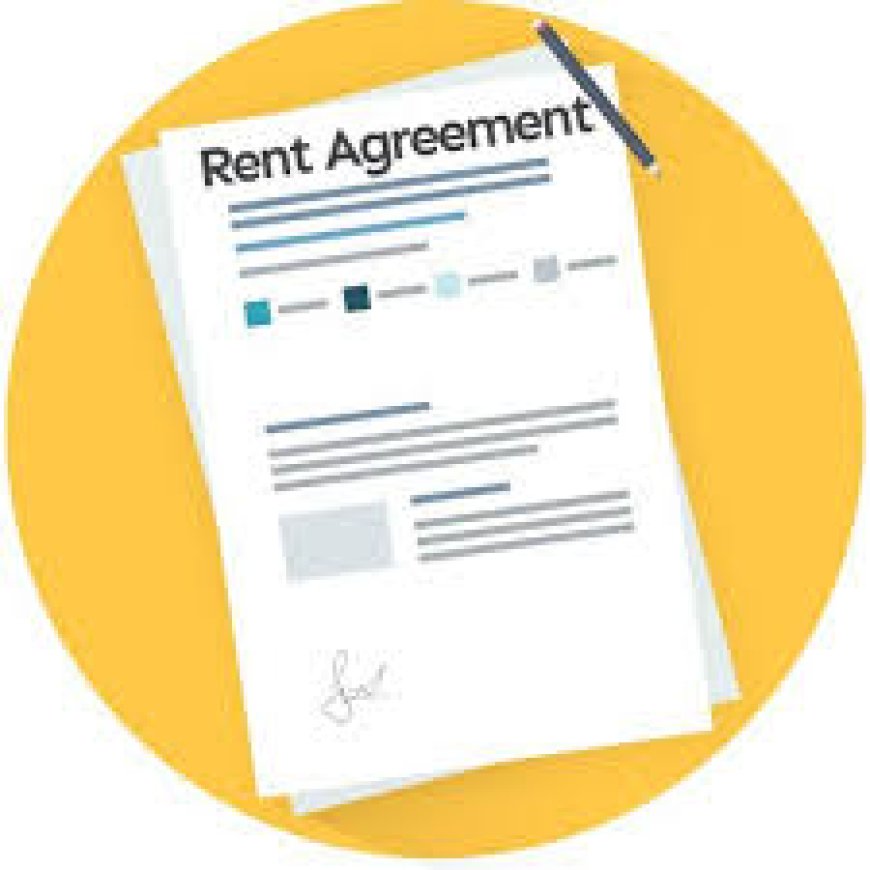10 Must-Have Clauses in Your Rental Agreement for a Hassle-Free Tenancy
Discover the 10 essential clauses every rental agreement must include to ensure a hassle-free tenancy. Protect your rights as a landlord or tenant with these key provisions.

A well-drafted rental agreement is the foundation of a smooth and stress-free tenancy. This legally binding document outlines the rights and responsibilities of both the landlord and tenant, minimizing potential disputes and ensuring clarity. Whether you are a landlord preparing a lease or a tenant signing one, including essential clauses in your rental agreement is crucial to protect both parties.
In this article, we’ll cover the 10 must-have clauses every rental agreement should include to ensure a hassle-free tenancy experience.
1. Names of All Parties Involved
The rental agreement should clearly list the names of all tenants and the landlord. This establishes who is legally bound by the contract. If multiple tenants are sharing the property, ensure their names are explicitly mentioned.
Including this clause prevents any ambiguity and holds all tenants equally responsible for complying with the terms of the agreement, such as paying rent and maintaining the property.
2. Description of the Rental Property
Every rental agreement must describe the property being leased. This includes the full address, type of property (apartment, house, etc.), and any specific features such as parking spaces, storage units, or shared facilities.
A clear description avoids confusion about what is included in the agreement, especially in shared housing or multi-unit complexes.
3. Lease Term and Renewal Conditions
Specify the duration of the lease, whether it’s a fixed-term lease (e.g., one year) or a month-to-month arrangement. Include the start and end dates for fixed-term leases.
For fixed-term leases, outline the conditions for renewal. Will the lease automatically renew, or will new terms be negotiated? For month-to-month agreements, specify the notice period required to terminate the tenancy.
4. Rent Payment Terms
The rent clause is one of the most critical aspects of the agreement. It should include:
-
The monthly rent amount
-
Payment due date
-
Accepted payment methods (e.g., bank transfer, check, online payment platforms)
-
Late payment penalties, if applicable
This clause ensures tenants understand their financial obligations and avoids misunderstandings about how and when rent is to be paid.
5. Security Deposit Details
Clearly outline the amount of the security deposit, its purpose, and the conditions for its return. Many states have laws governing the handling of security deposits, including timelines for returning the deposit after the lease ends.
Be specific about deductions for damages beyond normal wear and tear and ensure these conditions are communicated to the tenant upfront.
Also Read: Top Benefits of Using Online Legal Services for Your Commercial Lease Agreement
6. Maintenance and Repairs
Define the responsibilities of both the landlord and tenant regarding property maintenance. For example:
-
The landlord is usually responsible for major repairs, structural issues, and systems like plumbing or heating.
-
Tenants are generally required to maintain cleanliness and report damages promptly.
This clause ensures that both parties know their obligations, reducing disputes over maintenance issues.
7. Use of Property and Restrictions
To avoid misuse of the property, include a clause specifying its intended use. For instance, residential properties should be used solely for residential purposes.
You can also include restrictions on:
-
Subleasing or Airbnb rentals
-
Pet policies
-
Smoking inside the property
-
Noise levels or disturbances
These rules help maintain the integrity of the property and promote harmony among neighbors.
8. Entry and Access by Landlord
Tenants have a right to privacy, but landlords may need access for inspections, repairs, or showings. Include a clause that specifies:
-
The landlord’s right to access the property
-
The notice period required before entry (typically 24-48 hours)
This clause protects the tenant’s privacy while ensuring the landlord can fulfill their responsibilities.
9. Termination and Eviction Conditions
Outline the circumstances under which the lease agreement can be terminated by either party. Include:
-
The required notice period for both tenant and landlord
-
Conditions under which eviction may occur (e.g., non-payment of rent, property damage, or illegal activities)
A clear termination clause ensures both parties understand their rights and obligations when ending the tenancy.
10. Dispute Resolution and Governing Law
Despite the best efforts to prevent conflicts, disputes may arise. Include a clause specifying how disputes will be resolved, such as through mediation, arbitration, or court proceedings.
Additionally, mention the governing law for the lease agreement, typically the state or local laws where the property is located. This ensures any legal proceedings follow the appropriate jurisdiction’s regulations.
Bonus Tips for a Comprehensive Rental Agreement
While the above clauses are essential, consider including additional provisions for:
-
Rent increases: Outline how and when rent can be increased during the lease term.
-
Utilities: Specify which utilities are included in the rent and which are the tenant’s responsibility.
-
Furnishings: If the property is furnished, include an inventory list of items provided.
Why a Well-Drafted Rental Agreement Matters
A thorough rental agreement protects both landlords and tenants by setting clear expectations from the start. It minimizes misunderstandings and provides a legal framework for resolving issues if they arise.
For landlords, it ensures the property is well-maintained and rent is paid on time. For tenants, it guarantees a safe and peaceful living environment with clear terms for their tenancy.
If you’re unsure how to draft a legally sound rental agreement, consider consulting online legal services. These platforms provide customizable templates and expert reviews to ensure compliance with local laws.
Conclusion
A hassle-free tenancy starts with a strong rental agreement. By including these 10 must-have clauses, landlords and tenants can protect their interests and foster a positive rental experience. Whether you’re preparing a lease agreement for the first time or updating an existing one, these provisions are essential for clarity and peace of mind.
What's Your Reaction?

















